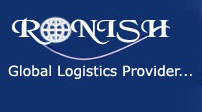
Understanding how to obtain a SONCAP certificate on the first attempt can save you weeks of demurrage, extra charges, and headaches for imports into Nigeria.
What Is a SONCAP Certificate?
The SONCAP certificate is an official document issued by the Standards Organisation of Nigeria (SON) confirming that regulated products have passed pre‑shipment testing and comply with Nigerian Industrial Standards (NIS) or approved equivalents before they leave the exporting country. Without it, Nigeria Customs will not release your cargo at Apapa, Tin Can, Onne, or any other Nigerian port.
Why Do You Need a SONCAP Certificate?
- Port clearance – A SONCAP certificate is a compulsory attachment to your PAAR and Form M for regulated goods.
- Consumer safety – It filters out counterfeit or sub‑standard items before they get to Nigerian shelves.
- Foreign exchange savings – Failed inspections lead to product returns, which drain scarce FX.
- Reputation protection – Chronic non‑compliance lands importers on SON’s blacklist.
2025 Regulatory Updates You Can’t Ignore
- Mandatory 10‑digit HS code – Since 27 March 2025, SON insists that every product certification and SONCAP application carry the full 10‑digit HS code, mirroring the Nigeria Customs NICIS II upgrade. Non‑compliant applications are rejected instantly.
- Fully digital portal – All applications now flow through the e‑SONCAP portal (soncap.son.gov.ng); manual submissions have been retired.
Pro tip: Upload a clear PDF of your Pro‑forma invoice and combine test reports into a single file to avoid portal time‑outs.
SONCAP Certificate Workflow
| Stage | What Happens | Your Action |
| 1. Product Certificate (PC) | Accredited inspection body (e.g., Cotecna, SGS, Intertek) reviews test reports & factory audit | Submit test reports, quality manuals |
| 2. SONCAP Certificate (SC) | After PC approval, shipment‑specific inspection and container sealing | Book inspection date; pay fees |
| 3. Destination Verification | SON cross‑checks SC with e‑Manifest on arrival | Present hard‑copy SC to Customs |
Documents You’ll Need for SONCAP certificate
- Final commercial invoice
- Form M (CBN‑approved)
- Laboratory test reports (ISO 17025)
- Bill of lading / Air waybill
- Packing list
- Accredited inspection report
Keep soft copies under 5 MB each for smoother uploads.
Typical Costs & Timelines (Indicative)
| Item | Cost Range (USD) | Average Duration |
| Product Certificate | 300 – 600 | 7‑10 days |
| SONCAP Certificate | 200 – 350 | 2‑5 days |
| Destination verification & SON admin fee | 0.40% of FOB | On arrival |
Exchange Rate Watch: Fees are pegged to USD but payable in Naira at the prevailing FX window, so budget extra for volatility.
Seven Mistakes Nigerian Importers Make—and How to Avoid Them
- Guessing HS codes – Leads to mismatch with Customs.
- Uploading blurry documents – Automatic rejection by the portal AI.
- Skipping factory audits for high‑risk goods like electronics.
- Late inspection booking – Inspectors outside China may need two weeks’ notice.
- Using expired test reports – Must be less than one year old.
- Incorrect applicant name – Must match Form M and TIN exactly.
- Ignoring follow‑up emails – SON gives only 72 hours to correct issues before cancelling an application.
How to Fast‑Track Your Application
- Bundle similar products with identical HS codes under one PC to cut costs.
- Choose an inspection body that already operates in the exporter’s country to avoid travel fees.
- Leverage bonded warehouses to stage goods for inspection before containerisation.
- Schedule inspections during low‑traffic windows (mid‑month) to beat end‑of‑month rush.
- Engage a licensed customs broker early—they can pre‑validate your HS codes and documents.
Benefits of Compliance That Go Beyond Port Release
- Market credibility—Retail chains in Nigeria are increasingly requesting proof of compliance.
- Lower insurance premiums—Insurers favour importers with clean compliance histories.
- Easier access to bank trade finance—Banks perceive lower operational risk.
Frequently Asked Questions
| Question | Quick Answer |
| Is SONCAP needed for every product? | No—food, drugs, and chemicals regulated by NAFDAC follow a different route. |
| Can I apply after shipment? | Technically yes, but expect hefty penalties and delays. |
| Does each shipment need a new SONCAP certificate? | Yes, even if your Product Certificate is valid for one year. |
Need expert help? Partner with Ronish Nigeria Limited or compliance consultant to navigate the process end-to-end.
Conclusion
Getting a SONCAP certificate is not just paperwork; it’s your passport to the Nigerian market. In today’s compliance‑driven environment—especially with the 2025 HS‑code overhaul—ignorance can cost millions in demurrage and lost sales. If you’re preparing a shipment right now, double‑check your HS codes, line up your test reports, and start your e‑SONCAP application before your goods leave the factory gate.
